Beans are some of the healthiest foods to include in your diet, with a wide variety of health benefits and an excellent nutritional profile. Despite some recent criticism from diet-ideologues, beans are some of the best foods in the world and adding them to a balanced diet can provide a wide variety of health benefits. They also fit into a plant-based diet and don’t even cause that much gas![1]
Whether you’re a vegetarian, vegan, or omnivore, beans and legumes should be a part of your diet. They can provide a great source of protein and complex carbohydrates. In this article, we’re going to take you through some of our favorite reasons why beans are great for health and can improve your health, fitness, and wellbeing.
The Carbohydrate Balance: Starches and Fiber
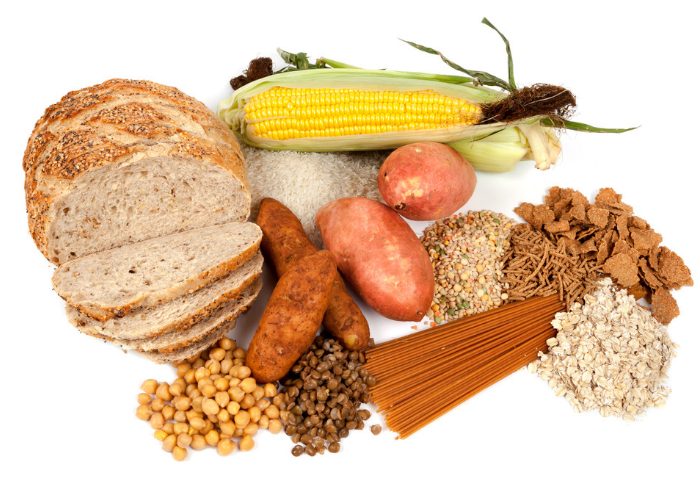
The main role beans play in the American diet is as a high-quality source of carbohydrates. We’ve discussed carbohydrates at length and beans are some of our favorites – they are a widely-varied group of foods, but generally contain complex carbs (starches) and a large quantity of dietary fiber. These are the best types of carbohydrate and contribute to a slow-release of energy rather than the spikes you might experience from eating sugars.
By increasing the percentage of your dietary carbohydrates that come from beans and other legumes, you can combat the risk of metabolic disorders that arise from poor-quality carbohydrates. For example, replacing processed potato foods with beans can contribute to improved metabolic health, digestive regularity, and combat some of the most common causes of death. Changing certain foods is one small step towards improving your diet, but the whole diet can be improved with these small changes to healthier foods.
Dietary fiber is a great example of this. Fiber is found in many plant foods and beans are a great example of this. Fiber contributes to improved metabolic health, digestive regularity, nutrient uptake, heart health, and hormonal regularity while also combatting constipation and markedly reducing the chances of developing Type-II Diabetes.[2]
An Amazing Plant Protein Source
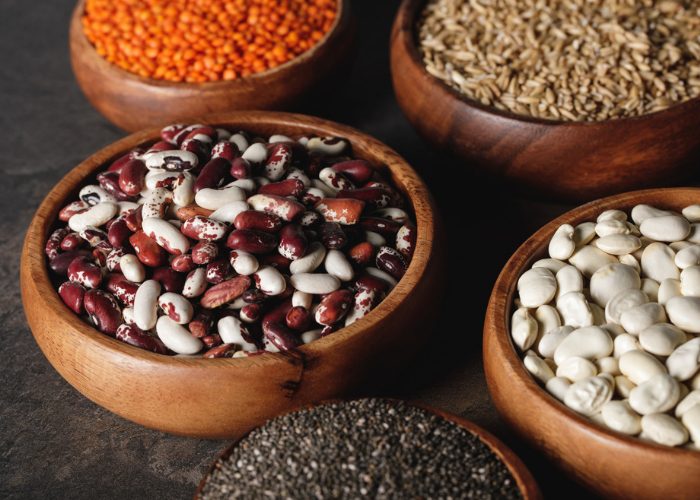
Plant protein sources are a hot topic of discussion, each with their own benefits and drawbacks. One of the largest problems is that they’re simply rarer and less-dense than their animal protein counterparts. Protein is necessary in all our diets, as it is the building block of many tissues from muscles and organs to blood and enzymes. Protein sources also play a large role in the diet because of their thermic effect and the importance of satiety (how filling a food is) on overall calorie intake.[3] Beans excel in all these fields and combine high-quality proteins with the complex carbohydrates and fiber mentioned above, making them a great all-rounder.
Beans are one of the best sources of plant protein – black beans contain 15g of complete, bioavailable protein in every cup. In combination with the carbohydrate profile mentioned above, this makes beans a great choice for a filling, high-protein food. If you’re an omnivore, this makes them the perfect addition to a fatty fish dish, along with the suitable vegetables. If you’re plant-based, beans (especially kidney beans or black beans) can be combined with other healthy plant foods to form the bulk of a meal, while providing essential nutrients.
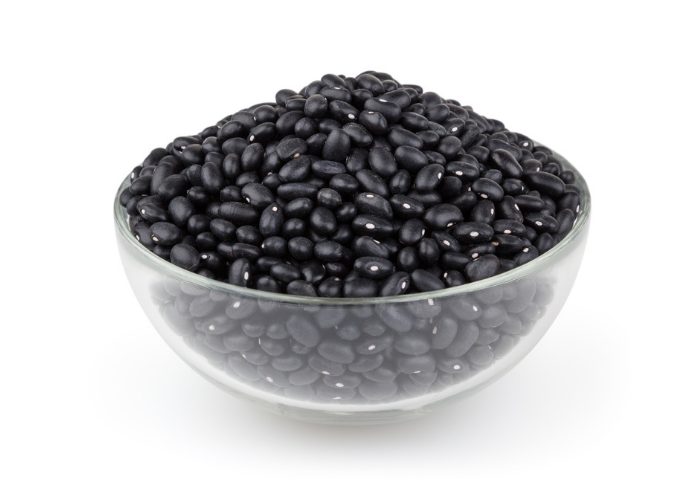
Plant proteins, such as those found in beans, also seem to have their own benefits for a healthy diet and lifestyle. With the worldwide average being 65% of protein intake coming from plant foods, but only 32% in the United States, we either eat fewer plant sources than the rest of the world, or simply choose lower-quality sources.[4] The arguments against plant protein sources are usually poorly-formed, while evidence suggests that the increased consumption of plant protein sources compared to animal proteins is actually a good way to decrease “all-cause mortality”. Simply put, eating more plant protein sources tends to promote longevity and greater health.[5]
You can improve a wide variety of health markers and disease risk profiles by switching to a plant-based protein source. Beans are a great example of the overall quality of plant proteins, and it is important to remember that you can’t separate the quality and content of protein from the nutrient profile of the whole food. You can’t claim that bacon is healthy just because it contains lots of protein. Plant proteins, such as those found in beans, have been shown to be part of an overall trend towards better health and reductions in cardiovascular disease[6] – by far the number-one cause of death in the United States.
One of the best ways to understand the health benefits of high-quality beans and legumes is to compare them against other, comparable plant protein sources and note the absence of some of the concerns and controversies that surround other foods. For example, soy is another plant protein source that has been tied to the development of female sexual characteristics in men (such as gynecomastia, and lowered testosterone to estrogen concentrations).[7] This is an over-simplification, but case studies have shown real risks, whereas the worst health effect that has been reliably proven of beans is a mild increase in flatulence![8]
Vitamins and Minerals: A Solution for Iron?
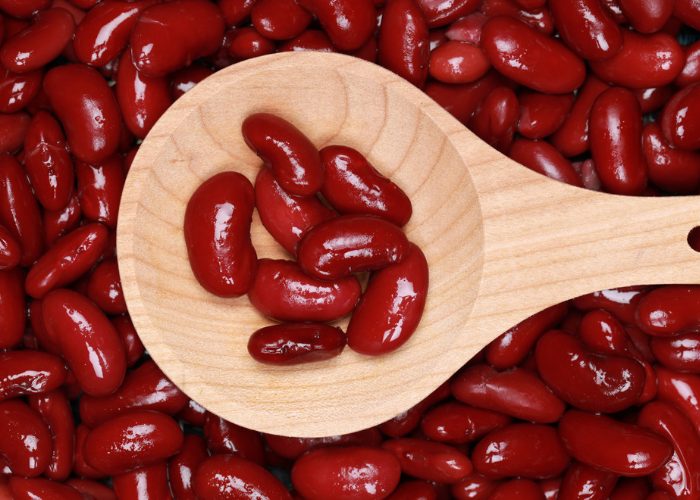
One of the best nutritional facts about beans that makes them a great choice for your diet and health is the concentration of vitamins and minerals in these tiny plant foods. Plant foods tend to be densely-packed with high-quality nutrients like vitamins and minerals, but beans contain some of the rarer, more difficult nutrients to find and absorb (at least among plant foods).
The most common dietary concerns for plant foods and plant-based diets is a lack of Iron. Iron is intimately tied to health of the blood and muscles and deficiency can cause a range of serious health problems from fatigue to anemia. Aside from tubers and other roots (which are incredibly hard to eat in large quantities), kidney beans are one of the best sources of iron with a single cup providing just under 1/3 of your daily iron needs.
Kidney beans are also rich in manganese and folic acid which are essential for maintaining a healthy metabolism and getting the most from the carbohydrates in your diet. This increases the quality and bioavailability of the complex carbohydrates in beans, contributing to their status as one of the best sources of carbohydrates and plant proteins on the market.
Myth-Busting: “But Beans Aren’t Paleo!”
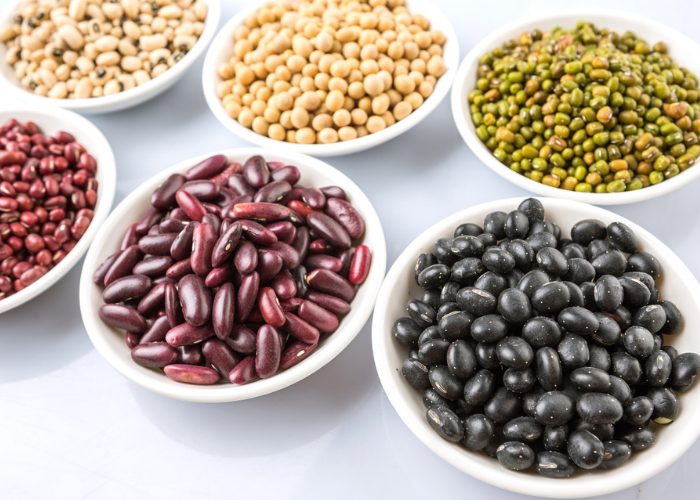
The recent surge in popularity of the paleo diet has pushed the inaccurate notion that beans are not healthy, because they contain a large quantity of phytic acid. Phytic acid is a common compound in grains and legumes, though in relatively small quantities, that has been shown to bind to important minerals (such as calcium and zinc) and reduce their digestion in certain circumstances.
First, the consumption of phytic acid has been suggested to have less than 20% effect on the absorption of these minerals and is only relevant when they are consumed at the same time. Additionally, the negative effects of phytic acid are modulated by something as simple as cooking: there may be some reason to not eat raw beans or whole grains due to the phytic acid content, but we’re hoping that you don’t plan on doing so anyway! A bowl of oatmeal or a casserole with kidney beans, black beans, and chickpeas, requires cooking – this negates the clear majority of phytate’s inhibiting effects.[9]
Finally, it is important to point out the positive effects of phytic acid – not only is this a non-threatening compound when cooked, but has confirmed anti-cancer properties when eaten! Research suggests that phytic acid (an “IP6” compound) can contribute to improved cellular function that plays a role in the reduction of mutations and cell-damage often associated with causing cancer. As a potent antioxidant, we only have good things to say about phytic acid – if you’re not going to eat your beans straight from the field!
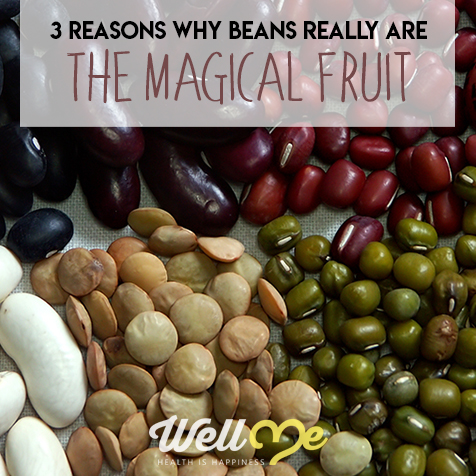
Overall, our position on beans is the same as ever: they are an amazing plant food and can improve various health markers from diabetes risk to the risk of heart disease. Beans are an amazing plant protein source and make a great main dish or accompaniment for vegans and omnivores alike. It is unfortunate that they have been stigmatized by Paleo-ideologues: beans and legumes might not be “paleo”[10],[11] is one of the healthiest and most versatile foods that you can add to your diet!
References
- [1] https://nutritionfacts.org/2011/12/05/beans-and-gas-clearing-the-air/
- [2] https://academic.oup.com/nutritionreviews/article-abstract/67/4/188/1901012
- [3] http://www.tandfonline.com/doi/abs/10.1080/07315724.2004.10719381
- [4] https://academic.oup.com/ajcn/article-abstract/59/5/1203S/4732587
- [5] https://www.ncbi.nlm.nih.gov/pubmed/24871477
- [6] https://www.ncbi.nlm.nih.gov/pubmed/24572039
- [7] http://ajcn.nutrition.org/content/68/6/1333S.short
- [8] http://europepmc.org/abstract/med/845703
- [9] http://ajcn.nutrition.org/content/77/5/1213.short
- [10] http://www.pnas.org/content/108/2/486.short
- [11] http://www.pnas.org/content/107/44/18815.short








